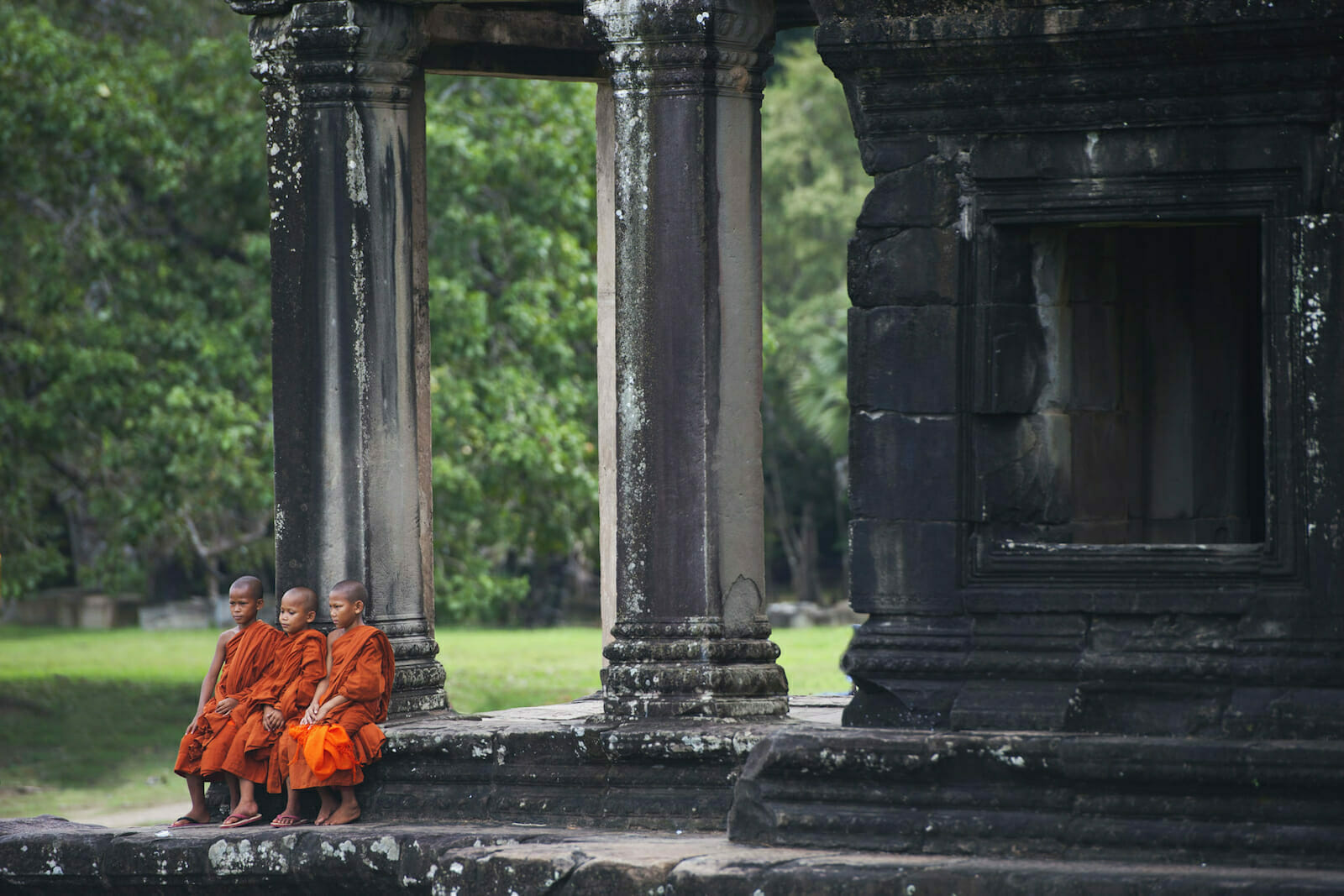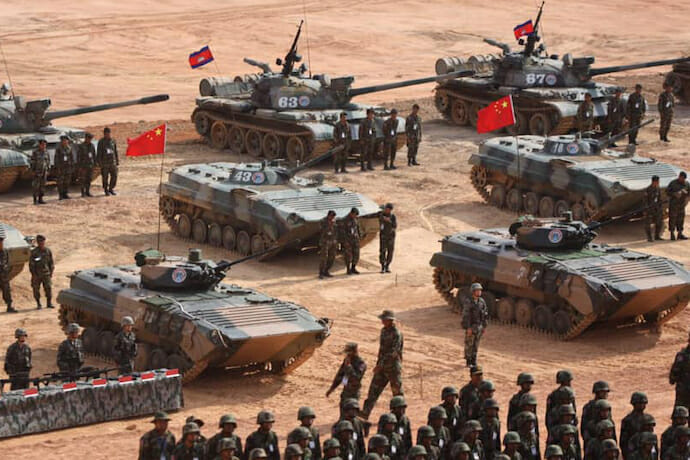
Addressing Political Issues at Home is Key to Cambodia’s Future
Cambodia is in a unique and challenging position amid the growing strategic competition between the United States and China. Since 2012, the country has been accused of supporting China’s strategic interests.
Although Cambodia claims that it pursues a neutral foreign policy, its actions seem to contradict this as it relates to China’s actions in the South China Sea. Cambodia’s domestic politics is vital in explaining Cambodia’s embrace of China and its foreign policy that seems to tilt heavily towards Beijing. When studying or explaining Cambodia’s troubling tilt toward China, it is impossible to neglect domestic politics and political struggles inside the country. These are the driving forces behind Cambodia’s close alignment with China, a country that does not mind Cambodia’s recent democratic backsliding.
The contestation between Cambodia’s ruling party, the Cambodian People’s Party (CPP), and the now-disbanded opposition party, the Cambodian National Rescue Party (CNRP), can explain Cambodia’s China engagement. While the opposition party appears to rely on Western countries for support, the ruling party tends to look to China for political and financial backing, especially when Western governments and institutions such as the U.S. and the European Union criticize Cambodia’s authoritarian turn.
In the 2013 national election, the opposition party gained an unprecedented 55 out of 123 seats in the National Assembly – an increase of 26 seats from the 2008 general election. In the 2017 commune election, the opposition party received greater support compared to the previous election, posing a threat to the CPP’s political dominance.
As a result, in the lead up to the 2018 general election, the opposition party was accused of a colour revolution to topple the legitimate government. It was then dissolved by the Cambodian Supreme Court, and its senior officials were banned from political activities for the next five years. This made way for the CPP to win all the 125 seats in the National Assembly in the 2018 election. Since then, Cambodia has been perceived as moving toward authoritarianism, drawing fierce criticism from major democracies, particularly the U.S. and the EU.
After the dissolution of the main opposition party, Cambodia’s domestic politics have made headlines. Democratic governments and civil society groups have voiced concerns and called for political charges against opposition leaders and senior officials to be dropped. However, China has supported Cambodia’s crackdown on dissent.

China has pledged its support for the Cambodian government in the event of any sanctions by the West. This provides the CPP-led government strong backing, allowing it to distance itself from the West. For example, when the Cambodian government called off a bilateral military exercise called Angkor Sentinel with the U.S. in 2017, China stepped in to replace the U.S. Since then, Cambodia and China have regularly conducted military drills, called the Golden Dragon. Even in 2020, both countries conducted joint military exercises despite the threat of the COVID-19 pandemic.
Cambodia’s close alignment with China has made Western countries more critical of this Southeast Asian country. Concerns over money laundering, a Chinese military base in Cambodia’s coastal province, and other issues have been raised. The military base on Cambodian soil is a critical issue that needs substantial attention because it could jeopardize and destabilize peace and security in the Indo-Pacific region and further damage Cambodia’s already tarnished international image.
Cambodia’s democratic backsliding has led the EU to partially withdraw its Everything But Arms (EBA) preferential trade scheme, significantly affecting Cambodia’s post-COVID-19 recovery efforts. The U.S. had previously withdrawn its aid support to the 2018 national election and imposed sanctions on several of Cambodia’s top military officials under the Global Magnitsky Human Rights Act. Sweden has recently decided to cut foreign aid to the Cambodian government and redirected it to support democracy advocates and human rights defenders. For China, on the contrary, it has helped and injected funds into the 2018 national election and vowed to support the Cambodian government to offset Western sanctions.
With China’s support and the EU’s mild sanctions, Cambodian Prime Minister Hun Sen has vowed not to bow down to the European Union and warned the opposition party’s death if EBA is withdrawn. To offset the EU’s EBA withdrawal, the Cambodian government signed a free trade deal with China and is working to forge trade deals with other potential partners, including South Korea, Japan, the UK, and India.
Even after the EBA scheme was partially withdrawn, the human rights situation has not improved. Instead, it seems to have gotten worse. Since July 31, more than 20 activists have been arrested, following the controversial arrest of Rong Chhun, a prominent union leader, and outspoken government critic.
Meanwhile, Cambodia is a recipient of China’s Belt and Road Initiative. It continues to welcome the inflow of Chinese investment. The recent sanctions by the U.S. over a Chinese company that is constructing a resort believed to have dual civil-military use in Cambodia’s Koh Kong province has put Cambodia in the middle of the geopolitical jockeying of the U.S. and China.
In the context of the heightened U.S.-China rivalry, which will likely continue into the foreseeable future, the Cambodian government and leaders of both the ruling and opposition parties need to find common ground. They need to solve political problems through frank and open dialogue. They should work together under the Paris Peace Agreement principles and the Cambodian constitution that upholds neutrality, sovereignty, liberal democracy, and respect for human rights.
When there is a lack of social unity and political reconciliation Cambodia becomes more fragile. Taking sides amid the growing uncertainty caused by the U.S.-China rivalry may not be a viable foreign policy. While it pleases one power, it upsets the other. Cambodia should instead be smarter and more flexible in the conduct of its foreign policy.
It needs to strike a delicate balance in its relations with both the U.S. and China – a difficult task for small states like Cambodia. It also needs to navigate its foreign policy in ways that allow it to avoid being caught in the middle of great power competition. Moving forward, the country should address issues related to domestic politics, reconsider its apparent tilt toward China, and reduce its dependence on Chinese “no strings attached” aid and loans.

